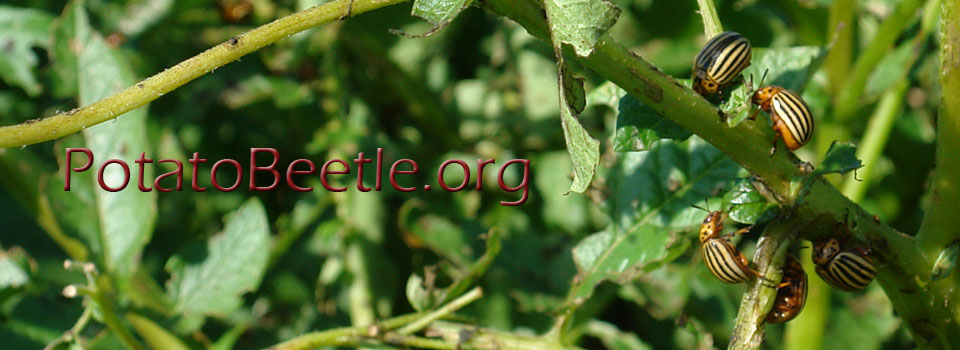Molnár I, Besenyei E, Thieme R, et al. Pest Manag Sci. 2017;73(7):1428-1437.
BACKGROUND: Colorado potato beetle (CPB) has become the biggest enemy of cultivated potato worldwide. One of the most effective sources of resistance to CPB is Solanum chacoense, an accession with a high leptine glycoalkaloid content. The aim of our study was to assay the repellence and toxicity of S. chacoense, its somatic hybrids (SHs) and their backcross progenies (BC1) with potato for CPB adults and larvae. Transgenic S. chacoense, deficient in DNA mismatch repair (MMR), was also used to produce SHs, in order to increase homeologous recombination and hence introgression of wild-species DNA into the potato gene pool. RESULTS: Wild-type SH was highly resistant to CPB. Resistance to CPB of BC1 progenies showed a 1:3 inheritance pattern. MMR-deficient SHs performed better in the resistance analysis. Most MMR-deficient SHs had a similar toxicity as S. chacoense and an intensely repellent effect on CPB adults. Resistance of SHs and BC1 clones may be attributed to leptine biosynthesis, which was confirmed using a RAPD marker. CONCLUSION: This is the first report of SHs and their progenies exhibiting both antibiosis and antixenosis against CPB. Resistant SHs are an important step forward in combating this voracious pest of potato.
